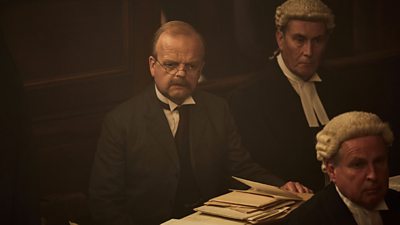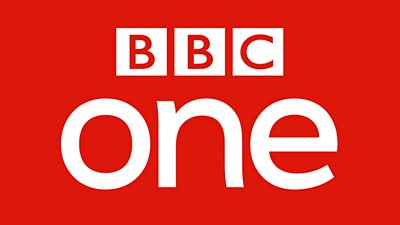An Interview with Toby Jones
Playing John Mayhew

Like Shakespeare, Agatha Christie is something that you can just absorb.
Can you tell us about your character?
My character is a solicitor who has fallen on hard times and relies on his back-handers to the police to give him access to petty criminals. In this instance he is employed by someone who is accused of murder, which is a big case for him and a way of earning a lot of money.
In creating the character, what initial discussions did you have on how to play John Mayhew?
The Witness for the Prosecution is set in 1923, and although the period is pretty self explanatory, I think the way that Sarah Phelps has written it, Julian Jarrold has directed it and I have discussed it with the other cast members, is that it is a world very much in recovery from the First World War. Everyone is in shock and picking up the pieces. Not just externally in society but internally and personally; physiologically everyone is reconstructing themselves and trying to establish what was broken. It’s those spirits that haunt the events of this film. It’s the ghost of war and all the effects of it.
Does the Great War have a big impact on this story?
The First World War as a period of time is very interesting because, in a way, the more you look at it the more you realise that the world was completely changed by it. I think that in 1923 the scale of that change was only just beginning to be understood. The implications of the ideals that people had gone to war for and the monumental sacrifice that people had made, those implications were only just coming to land.
In The Witness for the Prosecution, you have this death five years after a war where life and death had been so trivially valued. It was been fascinating shooting in Liverpool, where the majority of my scenes were shot, whilst walking around the City Hall I came across a World War I commemorative plaque which just happened to be dated 1923, the time that this film is set, and there were thirteen thousand Liverpudlians commemorated in list form. The coincidence as an actor to seize upon something like that was very timely. You begin to get a sense of that scale, and to know that every city across the country has those memorials still. They dominate our lives and the spirit of the war and the fallen will always haunt us.
Were you familiar with Agatha Christie’s works before coming to this production?
Agatha Christie, as I understand it, is the best selling author of all time after Shakespeare and the Bible, so I think it is hard not to have heard of her novels or seen an adaptation on television or film. I remember as a kid going to the cinema to see Death on the Nile, starring Peter Ustinov and I had the pleasure of playing a part in the television version of Murder on the Orient Express.
Like Shakespeare, Agatha Christie is something that you can just absorb.
What is it that makes Agatha Christie stories so absorbing?
I think it is curious as one of the satisfactions of watching an Agatha Christie adaptation or reading one of her stories is that she presents a crime early on, but the mechanism of the plot evolves ingeniously and you find yourself trying to sort it out. There is a pleasure in watching clockwork plots unwind. What I found interesting and attractive about The Witness for the Prosecution, and in Sarah Phelps’ adaptation of it, is that it is untypical of Agatha Christie because the plot does not sort itself out. Clearly there is unease in the plot and I think that is a direct reflection of the time in which Christie was writing.
Describe the relationship between John Mayhew, and his wife Alice?
John and Alice’s marriage is an interesting challenge; their relationship is clearly dysfunctional and existing on very low ebb. They’re little more than people who exist in the same space together and I suppose the challenge is to try and make it more than purely miserable. The challenge is to try and find the way that people who are depressed in a relationship manage to keep going and manage to find a positive side to it and portray those moments of lightness.
Biography
Multi-award winning Toby Jones is one of the most distinguished film, television and stage actors of his generation. He studied Drama at the University of Manchester from 1986 to 1989, and at L'École Internationale de Théâtre in Paris under Jacques Lecoq in Paris from 1989 to 1991. Toby has recently lead the British Home Guard as Captain Mainwaring in Dad’s Army, directed by Oliver Parker for Universal Pictures. This year, he will also star in Anthropoid, director Sean Ellis new film, alongside Jamie Dornan and Cillian Murphy. Toby will also star in the sci-Fi thriller Morgan produced by Ridley Scott for Twentieth Century Fox and costarring Kate Mara, Paul Giamatti, and Jennifer Jason Leigh.
In 2017 he will also be seen in The Coldest City, directed by David Leitch starring alongside Charlize Theron, James McAvoy and John Goodman. Next year will also see Toby reteaming with Tinker Tailor Soldier Spy’s director Tomas Alfredson in his new thriller The Snowman. Most recently Toby wrapped filming Kaleidoscope and returned to TV in The Secret Agent, a three-part drama for BBC One, adapted from Joseph Conrad’s novel. It has also been announced that Toby will be playing a villain in star in the next series of the multi
award-winning hit Sherlock, produced by Hartswood Films for BBC One.

